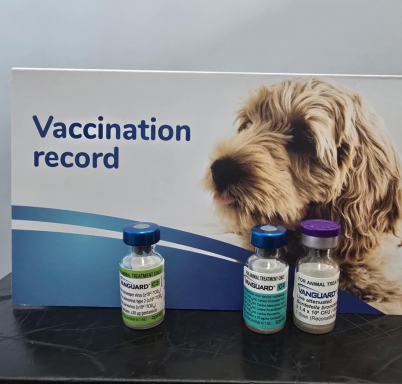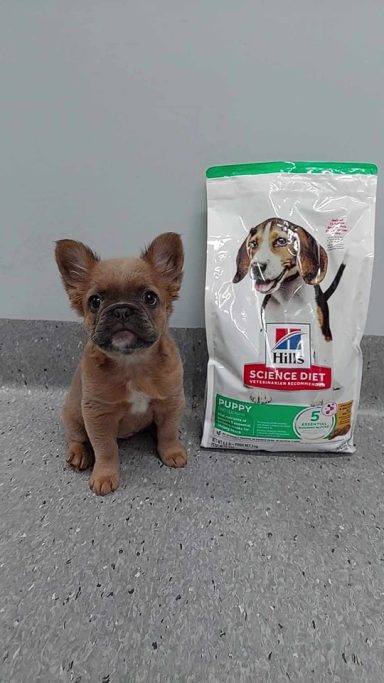Services: General Pet Health Care
Dental Services
Dental disease is very common in cats and dogs. Periodontal (gum) disease is one of the most common conditions seen by veterinary surgeons today. Problems begin when plaque and tartar are allowed to build up on your pet’s teeth.
Plaque harbours the bacteria, which can infect gum tissue and the roots of teeth, causing disease and tooth loss. The bacteria can also enter the bloodstream and may cause damage to organs.
Signs of poor oral health:
- Bad breath
- Sensitivity around mouth
- Loss of appetite
- Difficulty chewing & eating food
- Pawing at mouth
- Loose or missing teeth
- Bleeding, inflamed or receding gums
- Tartar deposits on teeth
Good dental care for dogs and cats
The first step in promoting good oral health is to have your pet thoroughly examined by a veterinary surgeon. It may be necessary for your pet’s teeth to be cleaned above and below the gum-line. This simple cleaning procedure requires your pet to be anaesthetised.
Oral hygiene starts at home. A good dental cleaning routine involves daily tooth brushing as it is considered to be the most effective way of removing plaque. Special toothbrushes and toothpaste designed for dogs and cats are available.
Dental products such as toothpaste are available at our surgery. This toothpaste appeals to pets and does not need to be rinsed. Human toothpastes should not be used.
Pet toothbrushes are soft and are shaped to fit your pet’s mouth and teeth. Brushes should be replaced every 4-6 weeks.
When brushing is not practical, an antibacterial oral rinse or gel may be recommended. These products are specially made for pets and with daily use can help to slow the build-up of dental plaque.
Arrange your dental check with us today
Fleas, Ticks & Worms
It is important to routinely use proven, preventative treatments against common parasites throughout your pet's life. Prevention is more cost effective than remediation.
Fleas and Ticks are parasites that live in the environment and attach themselves to your pet; they drink their blood and use it as food. Fleas and ticks cause your pet discomfort, and in some cases, cats and dogs that are allergic to fleas and can have a severe skin reaction.
Ticks can transmit diseases to pets. Paralysis Ticks are prevelant in our area and in some cases, can even be fatal. Therefore, it is important to take preventative measures to protect your pets from tick bites.
Worms are tiny parasites that live in your pet’s body, often picked up by ingestion.
These parasites are sometimes overlooked when your pet displays symptoms of diarrhoea, bloating, cramping and other digestive symptom to more severe symtoms including excessive bleeding. Lungworm is transmitted by slugs and snails and can also be found in snail slime trails. Lungworm can cause coughing and bleeding problems. Some of parasites can also be transmitted by other parasites. Fleas for example transmit tapeworm.
Talk to us about suitable prevetative treatements we have available.
Heart Worm
Heartworm disease is a potentially fatal but preventable infection caused by a worm parasite. The organism is transmitted by mosquitoes which carry the heartworm larvae from an infected animal to a new animal host. After a arriving in the new host, they grow into adult worms after a several months and live in the blood vessels that serve the heart and lungs.
In advanced infections, the heartworms enter the heart as well. The presence of parasites stresses the dog’s heart and causes inflammation of the blood vessels and lungs. In addition, severe complications are possible when the number of worms present becomes high or when the heartworms die
Prevention is better than the cure/treatment and much more cost effective. Talk to us about your options.
Alergies
Skin issues
Redness, itching, swelling, and hives are typical signs of skin irritation caused by an alergic reaction.
Digestive problems
Food allergies can lead to gastrointestinal issues such as diarrhoea, vomiting or excessive gas.
Respiratory symptoms
Sneezing, coughing, or wheezing may indicate an allergic reaction to airborne particles.
Eye irritation
Watery, red, or itchy eyes can be a sign of allergies.
Ear infections
Chronic or recurrent ear infections may be linked to underlying allergies.
Talk to us about assessment and treatement options.
Arthritis
Arthritis is inflammation of the joints characterised by pain and stiffness caused by bones and joints rubbing together due to damage or loss of cartilage.
Arthritis is one of the most common canine health conditions. All dogs, but especially older dogs are susceptible to arthritis. Obese dogs and large dog breeds may be diagnosed with arthritis more frequently and at younger ages due to the greater weight and pressure on joints.
If the cartilage between the joints continues to deteriorate as a dog ages, arthritis may lead into Degenerative Joint Disease. That is why it’s critical to spot the early signs of arthritis and begin appropriate treatment.
What to look out for...
- Difficulty standing up
- Stiffness or lameness
- Decreased stamina
- Difficulty when squatting to use the bathroom or having accidents at home
- Exhibiting pain when being patted/petted or touched, especially around the hind legs
- Fatique after bouts of activity
- Irritability/behavioral changes
Talk to us if you have concerns about your pets mobility.
Diet/Weight
It’s easy for a pet to put on unwanted weight. Sadly, overweight pets have shorter lifespans and in later years will likely have unhappier lives due to their excess weight. They are susceptible to a number of medical conditions like diabetes, skin conditions, and arthritis. Managing your pets weight is therefore an important part of maintaining their overall physical health.
Talk to us about your pets weight if you have concerns and we can provide advice on diet and exercise and how to manage weight gain.
©Copyright. All rights reserved.
We need your consent to load the translations
We use a third-party service to translate the website content that may collect data about your activity. Please review the details in the privacy policy and accept the service to view the translations.




